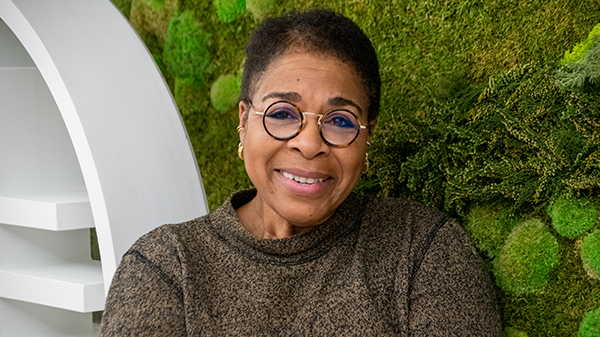Dr. Victoria A. Cargill was just 16 years old when she arrived at Mount Holyoke from a farm in upstate New York. Now senior director at the Milken Institute’s Center for Public Health, she admits that she came “kicking and screaming.”
“My mother insisted on Mount Holyoke. I didn’t want a women’s college in South Hadley. I wanted to be in Boston.”
The social adjustment was especially tough, Vicki recalled. “I owned only a couple pairs of shoes, and some students had rolled in with their own horses. For many reasons, I always felt a little bit less.”
Underscoring the displacement was her status as one of the few Black students in the class of 1973. Vicki had been the only Black student at her high school. Growing up, she had been bullied, had been punched and had excrement left in her locker. “The footprint of racism was quite profound in my hometown.”
Throughout that fall, Vicki pleaded with her mother to let her withdraw. Meanwhile, though, she had discovered the magic of studying in the library’s main reading room with classical music on headphones. She’d also become involved with a group planning to attend the march on Washington to protest the Vietnam War.
Still, by Christmas break, she hadn’t given up on the idea of transferring. While home, Vicki had a much-anticipated reunion with her best friend from high school, who was attending a large state university. Not long after arriving, she called her mom for a ride home.
“We had nothing to talk about. My friend’s stories were about things that didn’t matter to me: football games, who could outdrink who,” she said. “Whereas I was talking about going with some kids to Washington and marching about the injustice of the war.”
Then came Vicki’s “thunderclap” realization that she had changed during those four months on campus. “I didn’t see it until I went back home. Now I knew there was nothing to do but keep moving forward. I couldn’t go back the other way.”
Moving forward meant traveling to D.C. for the protest, doing independent research and taking a graduate-level class on reproductive endocrinology across mammalian species at UMass. During senior year, having just turned 20, she interviewed at medical schools and defended a thesis on prostaglandin F2 alpha on the involution of the corpus luteum in pregnant mice.
A different type of thunderclap came just after her thesis defense. That was when Vicki got the news about the class of 1906’s decision to fund her first year of medical school at Boston University.
“To this day, I remain speechless. Their gift made such a world of difference,” said Vicki. “It’s always one of the first things in my bio.”
The rest of Vicki’s bio chronicles a career shaped by being a young physician on the frontline of the HIV/AIDS epidemic. She’s the founder of Stopping AIDS Is My Mission, a peer education program for Black teenagers in Cleveland. She’s the second Black woman to obtain the rank of full professor at Case Western Reserve University School of Medicine. She championed equity and underserved communities as the National Institutes of Health’s director of Minority Research and Clinical Studies, acting director of HIV Therapeutics Research in the Office of AIDS Research and later as an associate director for Interdisciplinary Research at the Office of Research on Women’s Health.
Vicki also served as assistant commissioner of health at the Baltimore City Health Department, where she oversaw the Ryan White Program and Community Risk Reduction/Syringe Support Services. Throughout the decades, she continued to treat patients in community clinics and was honored as one of America’s top doctors.
While Vicki credits Mount Holyoke with “giving me wings,” repaying medical school debt and having special needs children impacted her ability to financially support Mount Holyoke.
On the occasion of her 50th class reunion, Vicki named Mount Holyoke as a beneficiary in her will. Even though her work often exposed her to the risk of death, Vicki said she put off creating an estate plan. “We all know that dying is the only way we’re getting off this planet, but nobody wants to deal with it. I knew the reality — I knew there wasn’t a special jet pack that would offer me a different exit.”
The will allows Vicki to provide for her family and finally make a significant gift to Mount Holyoke.
“I’ve never forgotten that gift from the class of 1906. I’ve never forgotten the opportunities that came to me because of this college and alum community.
“Mount Holyoke was willing to take a chance on a poor Black kid with big ideas. Through this bequest, I can be paying it forward long after anyone remembers my name.”



Explore the MHC Social Universe >